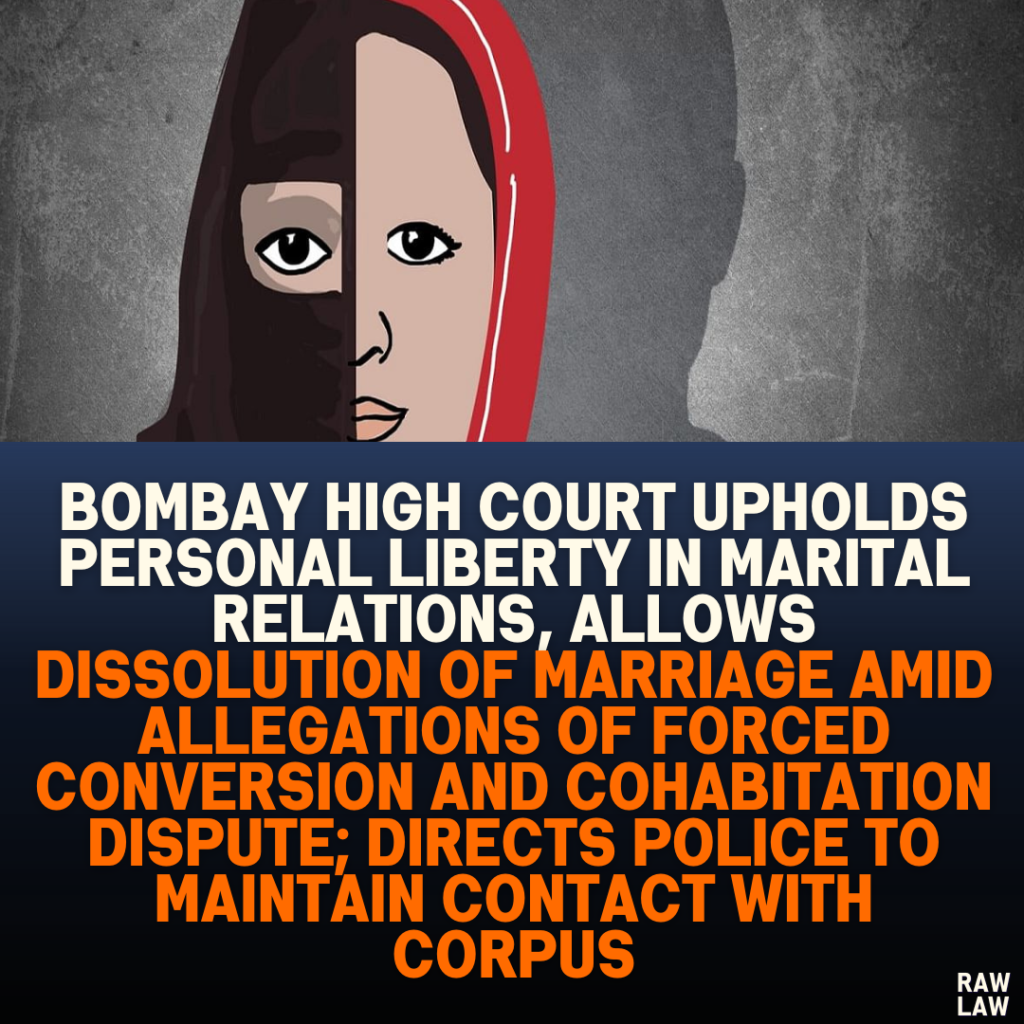Court’s Decision
The Bombay High Court allowed the dissolution of marriage between the petitioner and the corpus (wife) based on mutual consent, with the corpus expressing her unwillingness to cohabit with the petitioner due to alleged coercion to convert religions. The court directed the Juhu Police Station to coordinate with the Kolkata Police to maintain the contact details of the corpus for one year to facilitate necessary legal proceedings if required.
Facts
The corpus married the petitioner on March 16, 2024, according to Hindu rites. She alleged that the petitioner coerced her into converting to Hinduism as a precondition for the marriage. She later returned to her parental home in West Bengal, expressing a desire to remain with her family and not with the petitioner.
Issues
The primary issue revolved around the allegations of forced religious conversion and the corpus’s unwillingness to continue marital relations.
Petitioner’s Arguments
The petitioner denied all allegations of coercion, asserting that the marriage and related proceedings were conducted with the corpus’s consent. However, he acknowledged that she could not be compelled to cohabit against her will.
Respondent’s Arguments
The corpus maintained her stance, reiterating that she was coerced into converting to Hinduism and expressing a firm desire to dissolve the marriage and live with her family.
Analysis of the Law
The court considered the legal implications of the corpus’s statement, which indicated a lack of voluntary consent regarding both the conversion and continued cohabitation. The court’s focus was on her right to live with autonomy and free will, recognizing her right not to cohabit or continue the marriage under coercion.
Precedent Analysis
The court reviewed precedents surrounding marriage dissolution due to lack of consent, particularly in cases involving religious coercion and marital autonomy, ensuring that the corpus’s autonomy was protected.
Court’s Reasoning
The court underscored that personal liberty and consent are essential in marital relations, and any coercion, especially regarding religious conversion, undermines these principles. Given the corpus’s firm stance on not wishing to cohabit with the petitioner, the court supported her decision to dissolve the marriage.
Conclusion
The court allowed the marriage to be dissolved by mutual consent and directed the Juhu Police Station to liaise with Kolkata Police to maintain the corpus’s contact details for a year to facilitate any future proceedings.
Implications
This ruling reinforces the principle that marriage, particularly when religious conversion is involved, must be based on free and informed consent. It affirms the right of individuals to dissolve marriages if coercion is involved, promoting the protection of personal autonomy and freedom in marital relationships.



